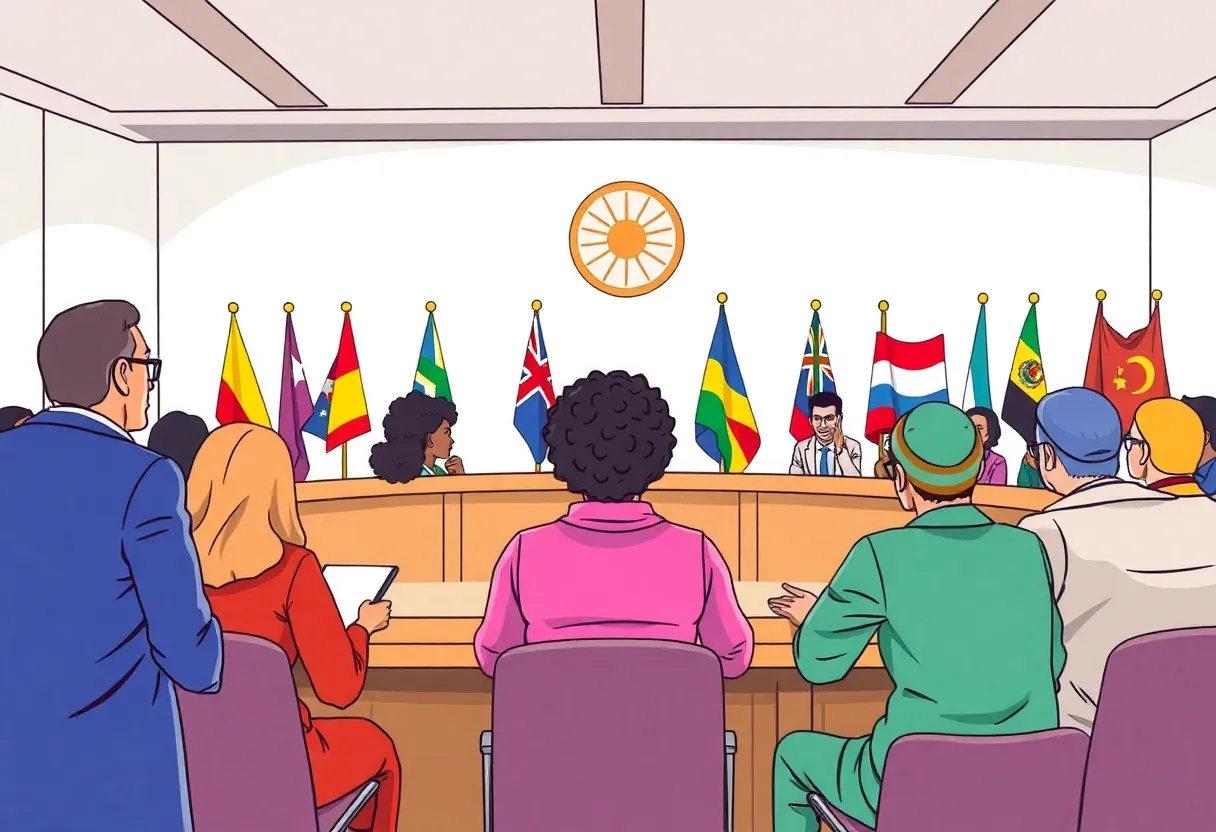News Summary
In response to a militant attack in Pahalgam that resulted in the loss of 26 lives, India has conducted military strikes on nine sites across Pakistan associated with terrorist infrastructure. This action underscores the heightened tensions between India and Pakistan, especially in the context of the ongoing conflict surrounding Jammu and Kashmir. The strikes aim to dismantle perceived threats to national security and reflect India’s commitment to combat terrorism, while raising concerns over potential escalation in hostilities.
India Launches Strikes on Pakistani Sites Prompted by Militant Attack
In a significant military campaign, India has conducted strikes on **nine sites** across Pakistan, which officials claim were utilized for **terrorist infrastructure**. This action comes just two weeks after a tragic militant attack in Pahalgam, Jammu and Kashmir, where **26 innocent lives** were lost—an event that has heightened tensions between India and Pakistan even further.
What Sparked This Military Action?
The catalyst for this military operation was the aforementioned attack that rocked the calm of Jammu and Kashmir. New Delhi wasted no time in laying the blame squarely at Islamabad’s door for harboring terrorist activities. As a result, India decided it was time to take some serious action, aiming to dismantle what they perceive as a **threat to national security**.
Aiming for Precision in Targeting
The strikes, executed during the early hours on Wednesday, were specifically **targeted at areas within Pakistan-occupied Jammu and Kashmir**. India’s military forces have positioned themselves as the **defenders of peace and security** in a region that has long been marred by conflict and allegations of terrorism. Officials asserted that these operations are part of their ongoing commitment to combat terrorism and enhance safety in Jammu and Kashmir.
A History of Complications
This situation isn’t new. India and Pakistan have faced a tumultuous history filled with **military confrontations** and tit-for-tat accusations over terrorism. Both countries have a long-standing rivalry, particularly surrounding the Kashmir region, where the conflicting claims have led to several wars and continuing unrest.
India’s actions are also a response to domestic pressures to ensure the safety of its citizens. The tragedies faced by families after incidents like the recent attack have fueled public outcry for stronger military responses to thwart terrorist threats. There is an undeniable sentiment among the populace that something must be done to protect the peace in their homeland.
Looking Forward: What’s Next?
With the situation escalating, many are left wondering what the future holds for India-Pakistan relations. Diplomatic bridges have often been tested between the two nations, but each new incident seems to come with a call for renewed aggression. Whether this latest action will lead to further conflict or open a dialogue for peace remains uncertain, but the stakes are undeniably high.
Further Implications
Military officials in India have made it clear that these strikes are not merely a response to one incident but rather a part of a **broader strategy** to deal with terrorist threats that plague the region. While some view these strikes as a necessary step toward ending violence, others worry that they might lead to an even more dangerous cycle of retaliation.
As both nations navigate this complex and often perilous situation, many are hopeful for a path toward peace. The time will reveal whether these recent military operations will yield the desired results or contribute to a greater conflict. For now, the global community watches closely, anxious to see how two nuclear-powered neighbors will proceed amidst such high tensions.
Deeper Dive: News & Info About This Topic
- The New York Times
- Wikipedia: Trade Deal
- BBC News
- Google Search: US-UK trade deal
- Reuters
- Google Scholar: Trade Agreement History
- CNN
- Encyclopedia Britannica: Trade Relationship
- The Guardian
- Google News: Trump trade deal
- CNBC
- Google Search: Trade Negotiations

Author: STAFF HERE PETERSBURG WRITER
The ST PETERSBURG STAFF WRITER represents the experienced team at HEREStPetersburg.com, your go-to source for actionable local news and information in St Petersburg, Pinellas County, and beyond. Specializing in "news you can use," we cover essential topics like product reviews for personal and business needs, local business directories, politics, real estate trends, neighborhood insights, and state news affecting the area—with deep expertise drawn from years of dedicated reporting and strong community input, including local press releases and business updates. We deliver top reporting on high-value events such as Grand Prix of St. Petersburg, Localtopia, and SHINE Mural Festival. Our coverage extends to key organizations like the St. Petersburg Area Chamber of Commerce and St. Pete Downtown Partnership, plus leading businesses in finance, manufacturing, and healthcare that power the local economy such as Raymond James Financial, Jabil, and Bayfront Health St. Petersburg. As part of the broader HERE network, including HEREJacksonville.com, HEREOrlando.com, HERETallahassee.com, and HERETampa.com, we provide comprehensive, credible insights into Florida's dynamic landscape.




